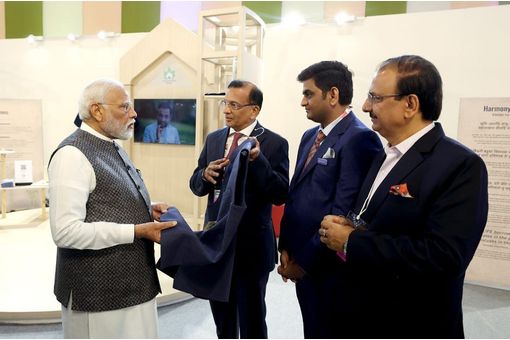Interviews
NTA files objection to 24 duty suspension bills
08 Dec '09
5 min read
In the case of the three bills -- S.2358 relating to certain warp knit open-work fabric, S.2360 Nonwoven fabric consisting of two layers of needleloom felt, the fabric weighing less than 250 g/m2, of a thickness not exceeding 3.7 mm, of a blend of all of the following staple fibers each with filament decitex measuring 3.5 or less: fire retardant rayon staple fibers, fire retardant modacrylic staple fibers, fire retardant para-aramid staple fibers and polyester staple fibers, and S.2516 Nonwoven air filter and diffusion media having layers of fine denier polyester fibers (2 to 10 decitex, with a length of 40 mm or more, but not more than 80 mm), weighing 400 to 700 g/m2, thermally bonded and impregnated in full depth with an adhesive coating, reinforced on one side with a supporting woven open-mesh scrim, used in downdraft spray cabins for painting applications where the media is required both as an air filter and as an air diffuser, providing uniform, nonturbulent air flow -- NTA objected bacause the fabrics are the same, or competitive with, fabrics made in the U.S. by NTA member companies.
In the case of 17 bills -- S.2578, S.2579, S.2580, S.2581, S.2582, S.2583, S.2584, S.2585, S.2586, S.2587, S.2588, S.2589, S.2590, S.2591, S.2592, S.2593, S.2602 all relating to knit-to-spape garments -- NTA objected bacause:
1. The subject garments are made of yarn of the type made in the U.S. and which may be exported for use in production of such garments in our trade preference or free trade partners, so that this bill could erode our current preference and free trade programs.
2. Such duty reduction will exert downward price pressure on competing products made in the U.S., which will harm the already weakened U.S. textile and apparel industries.
3. We also oppose because it has always been our understanding that the Miscellaneous Tariff Bill was intended to promote U.S. manufacturing by providing limited tariff relief (up to $500,000 for any specific tariff line) to domestic U.S. manufacturers who use inputs that are not available from a domestic source, not as a vehicle to swell the profit margins of importers and retailers of finished goods to the discouragement of domestic manufacturing.
4. Further we note that the U.S. is currently, in the Doha Round of World Trade Organization talks, negotiating reductions in textile and apparel duties in exchange for certain trade liberalization with regard to other goods and services on the part of our trading partners, in that context it makes no sense to unilaterally give up a tariff with no compensation from our trading partners.
In the case of 17 bills -- S.2578, S.2579, S.2580, S.2581, S.2582, S.2583, S.2584, S.2585, S.2586, S.2587, S.2588, S.2589, S.2590, S.2591, S.2592, S.2593, S.2602 all relating to knit-to-spape garments -- NTA objected bacause:
1. The subject garments are made of yarn of the type made in the U.S. and which may be exported for use in production of such garments in our trade preference or free trade partners, so that this bill could erode our current preference and free trade programs.
2. Such duty reduction will exert downward price pressure on competing products made in the U.S., which will harm the already weakened U.S. textile and apparel industries.
3. We also oppose because it has always been our understanding that the Miscellaneous Tariff Bill was intended to promote U.S. manufacturing by providing limited tariff relief (up to $500,000 for any specific tariff line) to domestic U.S. manufacturers who use inputs that are not available from a domestic source, not as a vehicle to swell the profit margins of importers and retailers of finished goods to the discouragement of domestic manufacturing.
4. Further we note that the U.S. is currently, in the Doha Round of World Trade Organization talks, negotiating reductions in textile and apparel duties in exchange for certain trade liberalization with regard to other goods and services on the part of our trading partners, in that context it makes no sense to unilaterally give up a tariff with no compensation from our trading partners.
National Textile Association
Popular News
Leave your Comments
Editor’s Pick
Andreas Rass
ZIMMER AUSTRIA | Digital Printing Systems
Anita Dongre & Yash Dongre
House of Anita Dongre Limited
































-Ltd..jpg?tr=w-120,h-60,c-at_max,cm-pad_resize,bg-ffffff)





.jpg?tr=w-120,h-60,c-at_max,cm-pad_resize,bg-ffffff)
.jpg?tr=w-120,h-60,c-at_max,cm-pad_resize,bg-ffffff)






